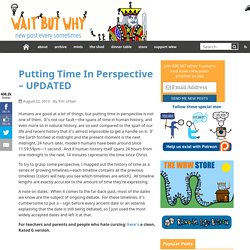

Cynthia McGowan
Healthy eating. Research CheatSheet. Physics. Information sources. Richard Feynman. Words. Encyclopedia of Philosophy. Food. Project and task management. Quantum World. Handy and Useful 1. Learning. Finance. Ideas. Writing. Yarny. A 12-Day Plan of Simple Writing Exercises. It’s the perfect time to restart your engine and get back into writing.

Here, I offer up a 12-day plan of simple writing exercises to help you keep your creative juices flowing without eating up too much of your time. Follow this plan and in less than half a month, you’ll not only be impressed with what you’ve accomplished, but you may also have something worth publishing. The 12-Day Plan of Simple Writing Exercises Day 1: Write 10 potential book titles of books you’d like to write. Day 2: Create a character with personality traits of someone you love, but the physical characteristics of someone you don’t care for. Day 3: Write a setting based on the most beautiful place you’ve ever seen. Day 4: Write a letter to an agent telling her how wonderful you are. Day 5: Write a 20-line poem about a memorable moment in your life. Day 6: Select a book on your shelf and pick two chapters at random. Day 7: Write a letter to yourself telling you what you need to improve in the coming 6 months. Brian A. Word Clouds for Kids!
ABCya is the leader in free educational computer games and mobile apps for kids.

The innovation of a grade school teacher, ABCya is an award-winning destination for elementary students that offers hundreds of fun, engaging learning activities. Millions of kids, parents, and teachers visit ABCya.com each month, playing over 1 billion games last year. Apple, The New York Times, USA Today, Parents Magazine and Scholastic, to name just a few, have featured ABCya’s popular educational games. ABCya’s award-winning Preschool computer games and apps are conceived and realized under the direction of a certified technology education teacher, and have been trusted by parents and teachers for ten years. Our educational games are easy to use and classroom friendly, with a focus on the alphabet, numbers, shapes, storybooks, art, music, holidays and much more! Knowledge. R project. Training / Courses. How to Beat Procrastination. This is Part 2.

You won’t get Part 2 if you haven’t read Part 1 yet. Here’s Part 1. PDF: We made a fancy PDF of this post for printing and offline viewing. Buy it here. (Or see a preview.) pro-cras-ti-na-tion |prəˌkrastəˈnāSHən, prō-| nounthe action of ruining your own life for no apparent reason Let me start by saying that I’ve had just about enough of the irony of battling through crippling procrastination while trying to write posts on procrastination and how to beat it. A couple notes before we begin: I’m not a professional at any of this, just a lifelong procrastinator who thinks about this topic all the time. Alright, so last week we dove into the everyday inner struggle of the procrastinator to examine the underlying psychology going on. We know about the Instant Gratification Monkey (the part of your brain that makes you procrastinate) and his dominion over the Rational Decision Maker, but what’s really happening there?
Planning A big list of icky, daunting tasks and undertakings. Putting Time In Perspective. Humans are good at a lot of things, but putting time in perspective is not one of them.

It’s not our fault—the spans of time in human history, and even more so in natural history, are so vast compared to the span of our life and recent history that it’s almost impossible to get a handle on it. If the Earth formed at midnight and the present moment is the next midnight, 24 hours later, modern humans have been around since 11:59:59pm—1 second. And if human history itself spans 24 hours from one midnight to the next, 14 minutes represents the time since Christ. To try to grasp some perspective, I mapped out the history of time as a series of growing timelines—each timeline contains all the previous timelines (colors will help you see which timelines are which). All timeline lengths are exactly accurate to the amount of time they’re expressing. A note on dates: When it comes to the far-back past, most of the dates we know are the subject of ongoing debate.
Improve your Brain Health. John Milton: The Milton-L Home Page. Blink: The Power of Thinking Without Thinking: Malcolm Gladwell: 9780316010665: Amazon.com. Science/knowledge. Science / Philosophy / Religion. Philosophy+technology.